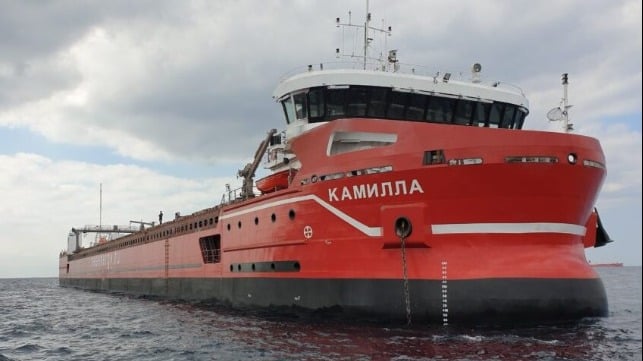Russia Moving Forward with Autonomous Navigation on Commercial Vessels

The Russian maritime industry is moving forward aggressively with plans to deploy autonomous navigation systems on its commercial shipping fleet.
Russian technology company Kronshtadt Technologies announced that has entered into agreements to equip 20 domestic cargo and passenger ships with the systems that it expects to start installing in 2021. Morspetsservice and SeaEnergy, both part of the MT Group, entered into agreements with Kronshtadt to become the first companies in Russia to announce the creation of a commercial fleet of autonomous vessels. The unmanned navigation systems will need to be approved by the classification society RINA.
Morspetsservice will equip ten of its Sakhalin cargo-passenger vessels and Sakhalinets multipurpose high-speed catamarans that provide sea freight and passenger traffic in the Far East, including the Sakhalin region, with the technology. Under the terms of the agreement with Kronshtadt, they plan to equip the lead ships of the series, MSS Pioneer and MSS Avangard, with the autonomous systems by August 30, 2021.
SeaEnergy intends to equip a series of ten U-Type multipurpose general cargo vessels with autonomous navigation systems. The 9,300-ton ships began operating in 2020 in the waters of the Black Sea, the Sea of Azov, and the Mediterranean Sea. The lead vessel in the series, the Kamilla, is scheduled to be equipped with the advanced system by December 31, 2021.
These steps are part of a broader effort across Russia for the deployment of maritime autonomous surface ships (MASS) and the development of a full range of technical systems for autonomous navigation. Russian Prime Minister Mikhail Mishustin recently approved a decree to support the introduction of a national-wide experiment in MASS operations. It allows every shipping company to test MASS operations.
The project is being led by the Russian Industry Association MARINET which is also overseeing sea trials of technical solutions being completed onboard several vessels of SCF, Rosmorport, and Pola Group. The tests are ongoing during the commercial operations of the vessels.

that matters most
Get the latest maritime news delivered to your inbox daily.
“The developed solutions are based on the Comprehensive Functional Equivalence principle, which supposes strict fulfillment of the functions prescribed today for the crew on board by the current safety regulation in the autonomous mode,” said Alexander Pinskiy, head of MARINET. “In general, we automated step-by-step almost every navigation function defined by STCW Code and Russian regulation in environment analysis, ship maneuvering, ship, and technical systems control. It gave us a clear scope of requirements for the technical solutions and allows operating MASS within the framework of the current international regulation.”
Pinskiy said that the plan is to equip at least 100 autonomous vessels under the Russian flag in the next three years.
